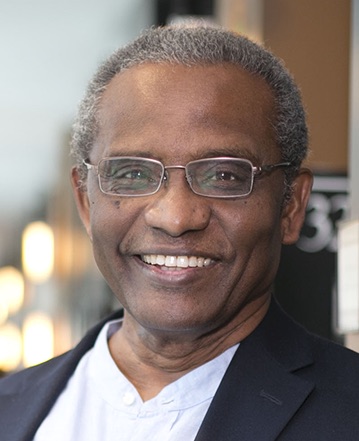Will marriage and family law continue to evolve?
"Marriage is not going away. Every society needs marriage; you can¿t survive without it." - Abdullahi Ahmed An-Na'im

The law must keep pace with changing social constructs of marriage.
For some, marriage does not have the salience it had in earlier generations; to them, marriage isn’t worth the trouble of ultimately divorcing if the relationship fails. There are others for whom marriage is a limiting institution because it doesn’t apply to a relationship with more than two partners. And there are still more who struggle to understand what marriage means in the context of their faith and community. Many also hold to the vision of marriage as an institution designed for procreation and family cohesion.
John Witte Jr. is a specialist in legal history, marriage law, and religious liberty.
Michael Broyde has published more than 75 articles and book chapters on various aspects of law and religion and Jewish law.
Religious marriage in a secular society
Marriage has never truly been a static institution. But, the extent to which it has changed and the impact of those changes depend on whom you ask.
Witte, whose popular books include From Sacrament to Contract: Marriage, Religion and Law in the Western Tradition (2012) and The Western Case for Monogamy over Polygamy (2015), says that there are four major challenges if family law is to keep pace with changing constructs of marriage. “We must find ways of reconciling traditional family values with modern liberties and of reconstructing traditional Christian teachings about sex, marriage, and family to respond to many modern teachings and practices and to the realities of religious and social pluralism,” Witte says. He continues that it is essential to “make the case that the intact marital family, whether straight or gay, is a vital and valuable option, especially for adults who [wish to] have children.” Lastly, he points out that in the Christian community, leaders must “work to ensure that Christians lead sexual, marital, and family lives that are faithful to the teachings of scripture, tradition, reason, and experience.”
Abdullahi Ahmed An-Na'im's current research includes a state-centric and people-centric study of human rights.
No matter the arrangement, “Marriage is not going away,” An-Na’im says. “Every society needs marriage; you can’t survive without it. The core idea of a man and woman founding lifelong relationships for supporting each other and their families will persist, even if these cohesive relationships vary largely across the country and across demographics.” An-Na’im proposes that while there are other forms of relationships that society and the state should accept and respect, they shouldn’t be called marriage. “There’s no point in collapsing all definitions into a single term; marriage is between a man and a woman with the possibility of having children.” This, he points out, is the difference between a relationship that serves a fundamental function and one that serves a social function.
Why marry at all?
Perhaps fulfilling fundamental functions isn’t reason enough for people to keep getting married, though. Broyde, whose latest book is A Concise Code of Jewish Law for Converts and who has published extensively on Jewish law as it pertains to issues like divorce and prenups, believes that marriage will become less common as society grapples with the “why” of the institution. Within religious communities, marriage may still be a natural choice, but secular society, he says, has diminished the attractiveness of marriage. “Our secular society has not had a good answer to the question ‘Why marry?’ for a long time,” he says. Broyde explains that marriage has lost many of its historically associated benefits. “It used to be that you couldn’t have sex, have children, or get health insurance unless you were married. Nowadays, there’s nothing left to marriage. There’s no reason to marry - secularly.” We know there are benefits to marriage (raising children, for instance), but Broyde points out that all the benefits are hard to quantify. Some are less objective data points, like affection, support, and intimacy.
Mark Goldfeder 12L 13L is editor of the Cambridge University Press Series on law and judaism.
Evolving laws for evolving times
So, this is modern marriage: couples joining together in religious and civil contexts for a variety of reasons. Marriage no longer has a singular meaning (if it ever did). If one chooses to get married in the modern era, how does family law support it? Conversely, how does family law support the dissolution of it? Broyde says, “Divorce has become extremely unpleasant and cumbersome. You can get benefits of marriage without enduring it. In the future, there’s going to be less marriage unless the law makes marriage more attractive.”
Witte points out that evolving constructs of marriage need evolving laws. “Exponential changes in modern Anglo-American family laws have been, in no small part, valiant efforts to bring greater freedom and equality to American public and private life and to purge the law of its many centuries of patriarchy, paternalism, and plain prudishness.”
Goldfeder’s scholarship considers the law’s place in weighing in about polygamy - especially if a religion deems it a viable path. “What interest does the state have in saying no to polygamy? What harm does it do to us, or to a third party, like children?” If this is the next phase of evolving family law, perhaps it won’t be entirely dissimilar from when same-sex marriage first became an issue. “A few years ago, people had a hard time accepting same-sex marriage, but from a legal perspective, it’s quite easy. You just change the language,” Goldfeder posits. For polygamy or other forms of plural marriage, it will be structurally different and more complicated, he notes. (Complicated, but not impossible, especially since - practically speaking - polygamy laws compared to current marriage laws are not too dissimilar from laws governing an llc compared to laws governing partnerships.)
Witte has explored the topic of polygamy as well, and distinguishes it from same-sex marriage in The Western Case for Monogamy over Polygamy. Traditional Western prohibitions on same-sex relationships and many other sexual crimes were largely biblical in origin, he says, and they have fallen aside as biblical faith has waned and constitutional liberties have waxed. But the Western legal tradition’s prohibitions on polygamy were both pre-Christian in origin and post-Christian in operation and now serve to enhance rather than erode constitutional liberties, especially those of women and children, who are disproportionately harmed by religiously based polygamy.
An-Na’im predicts that religion will lead the law as our society forms new types of marriages. “Ethical and religious norms are more powerful and enduring than legal norms, but we need legal norms. The law cannot exist without a moral compass,” he says. The law does more than regulate; it also complicates. Broyde’s observations about divorce underscore this. “When you consider an activity, you ask, ‘What if I fail?’” he says. If you fail at marriage, it costs roughly 10 percent of your assets to get divorced, and that’s not calculating the emotional toll. Put simply, “There are fewer marriages because divorce is so hard and so expensive. We need better rules that allow couples to split things without allowing terrible, scorched-earth litigation to take place,” Broyde says.
Goldfeder points out that “marriage itself is a fundamental right,” while An-Na’im adds that “no right is absolute. Rights must be defined by other lives in society.” So how are others living in our society? If they are marrying less frequently, or they are pursuing marriages beyond the traditional man-woman union or the 1:1 partnership, we need to see beyond the definition of marriage that’s grounded in archaic laws. Broyde calls for “develop[ing] a new vision of marriage.” There are certain archaic laws governing marriage that persist across all religious communities. Law and religion scholars are called to interpret them for our modern needs. If, as Witte has pointed out, the family law system no longer needs to address human adults’ nearly all-consuming need for sex, their enduring need for parental care, and their faltering ability to avoid self-destructive behavior, then there is an opportunity to develop laws better suited to the needs of our time.



